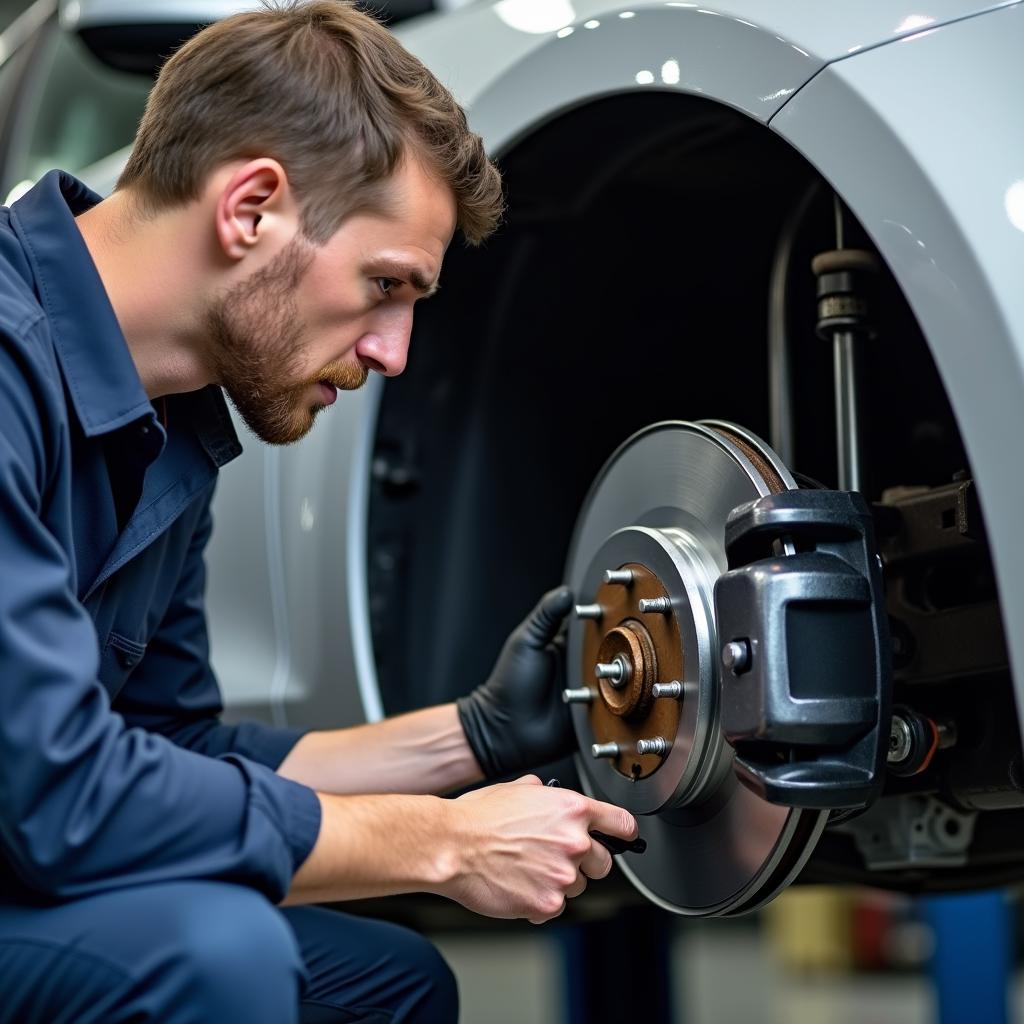New car owners often feel a sense of pride and excitement, but it’s also important to remember that owning a car comes with responsibilities, especially when it comes to maintenance. While new cars are generally reliable and require less frequent maintenance compared to older vehicles, neglecting regular service can lead to costly repairs down the line. In this article, we’ll discuss essential New Car Service Maintenance, providing valuable insights for car owners and professionals in the automotive industry.
What is New Car Service Maintenance?
New car service maintenance refers to the routine inspections, checks, and services performed on a new car to ensure its optimal performance, safety, and longevity. This includes tasks like oil changes, tire rotations, fluid checks, and inspections of various components. Following a recommended maintenance schedule can significantly extend the lifespan of your vehicle, prevent unexpected breakdowns, and maximize your car’s value over time.
Importance of New Car Service Maintenance
There are numerous reasons why adhering to a new car service maintenance schedule is crucial. Let’s delve into some of the key benefits:
1. Increased Vehicle Lifespan
Regular maintenance plays a vital role in extending the lifespan of your car. By addressing potential issues early on, you can prevent them from escalating into major problems that could shorten the life of your vehicle.
2. Enhanced Safety
Maintenance ensures that critical components like brakes, tires, and steering systems are functioning properly. This significantly enhances safety on the road, reducing the risk of accidents and ensuring a more comfortable driving experience.
3. Improved Performance and Fuel Efficiency
Consistent maintenance, especially regular oil changes and air filter replacements, improves engine performance and fuel efficiency, ultimately leading to cost savings in the long run.
4. Reduced Costs
While some may perceive maintenance as an added expense, it’s actually a cost-saving measure. By addressing minor issues before they become major problems, you can prevent costly repairs and unexpected breakdowns.
5. Peace of Mind
Following a maintenance schedule provides you with peace of mind knowing that your car is in optimal condition, making every journey a stress-free experience.
New Car Service Maintenance Schedule
A new car service maintenance schedule outlines the recommended tasks and their frequency. This schedule is typically provided by the car manufacturer and is often found in the owner’s manual. However, these schedules are general guidelines and can vary depending on the specific model and driving habits.
Here’s a simplified example of a new car service maintenance schedule:
- First Service: Within the first 1,000 miles or 3 months, depending on which comes first. This service typically includes an oil change, tire pressure check, fluid levels inspection, and a general vehicle inspection.
- Second Service: Around 5,000 miles or 6 months, depending on which comes first. This service often includes an oil change, tire rotation, air filter inspection, brake inspection, and a thorough visual inspection of the vehicle.
- Third Service: At approximately 10,000 miles or 12 months, depending on which comes first. This service usually involves an oil change, tire rotation, fluid top-ups, and a comprehensive vehicle inspection.
“It’s crucial to understand that this is a general guideline, and the specific maintenance schedule for your car will depend on the manufacturer’s recommendations and your individual driving habits.” – Dr. Michael Thomas, Automotive Expert
Key Maintenance Tasks for New Cars
1. Oil Changes:
Oil changes are essential to keep your engine lubricated and running smoothly. Newer cars often require synthetic oil, which has a longer lifespan than conventional oil.
2. Tire Rotation and Inspection:
 Tire Rotation and Inspection
Tire Rotation and Inspection
Rotating your tires helps to distribute wear evenly, prolonging their lifespan. Regularly checking tire pressure and tread depth is crucial for safety and optimal performance.
3. Fluid Checks and Top-Ups:
Regularly checking and topping off essential fluids like coolant, brake fluid, power steering fluid, and transmission fluid is crucial for preventing system failures and ensuring proper operation.
4. Air Filter Replacement:
A dirty air filter restricts airflow to the engine, leading to reduced performance and fuel efficiency. It’s important to replace the air filter as recommended in the owner’s manual.
5. Brake Inspection and Service:
 Brake Inspection
Brake Inspection
Brakes are vital for safety, so regular inspections and servicing are essential. This includes checking brake pads, rotors, calipers, and fluid levels.
Where to Get Your New Car Serviced
You have several options for getting your new car serviced:
- Dealership: Dealerships often provide comprehensive service packages specifically designed for new cars.
- Independent Shops: Reputable independent repair shops can provide high-quality service at competitive prices.
- DIY Maintenance: For simple tasks like oil changes and air filter replacements, you can consider performing maintenance yourself, but ensure you have the knowledge and tools necessary for safe and proper execution.
FAQ
Q: How often should I service my new car?
A: The frequency of service intervals will vary depending on the car model and your driving habits. Refer to your owner’s manual for specific recommendations.
Q: What are the signs of a problem with my new car?
A: Signs of potential issues include unusual noises, warning lights, fluid leaks, reduced performance, and changes in fuel efficiency.
Q: How can I find a reputable mechanic for my new car?
A: Ask for recommendations from friends, family, and online communities. Check online reviews and ratings, and ensure the mechanic is certified and specializes in your car make and model.
Need expert advice? Contact us at +1 (641) 206-8880 or visit us at 500 N St Mary’s St, San Antonio, TX 78205, United States. We are here to help you keep your new car running smoothly.




Leave a Reply